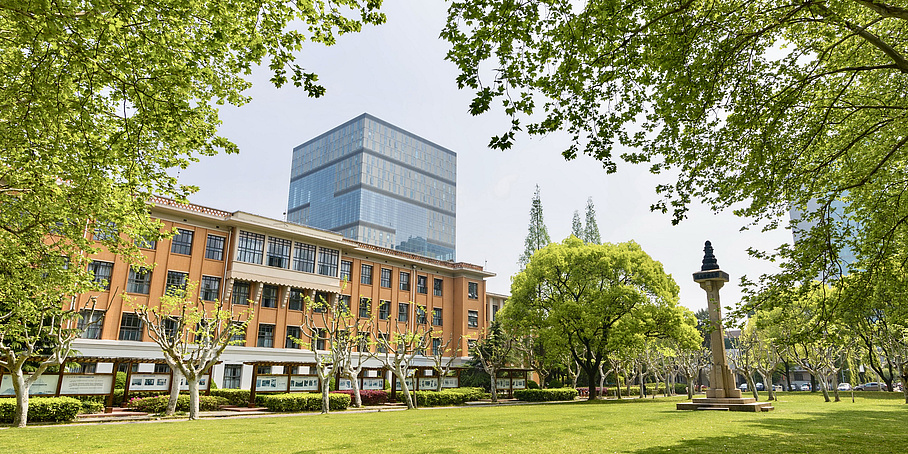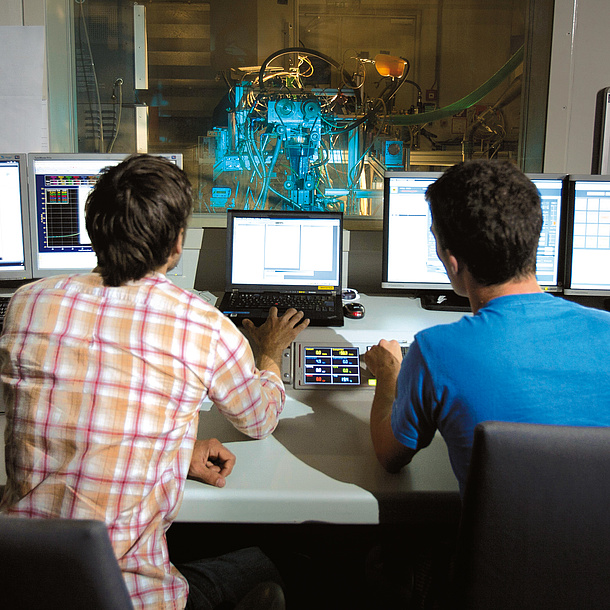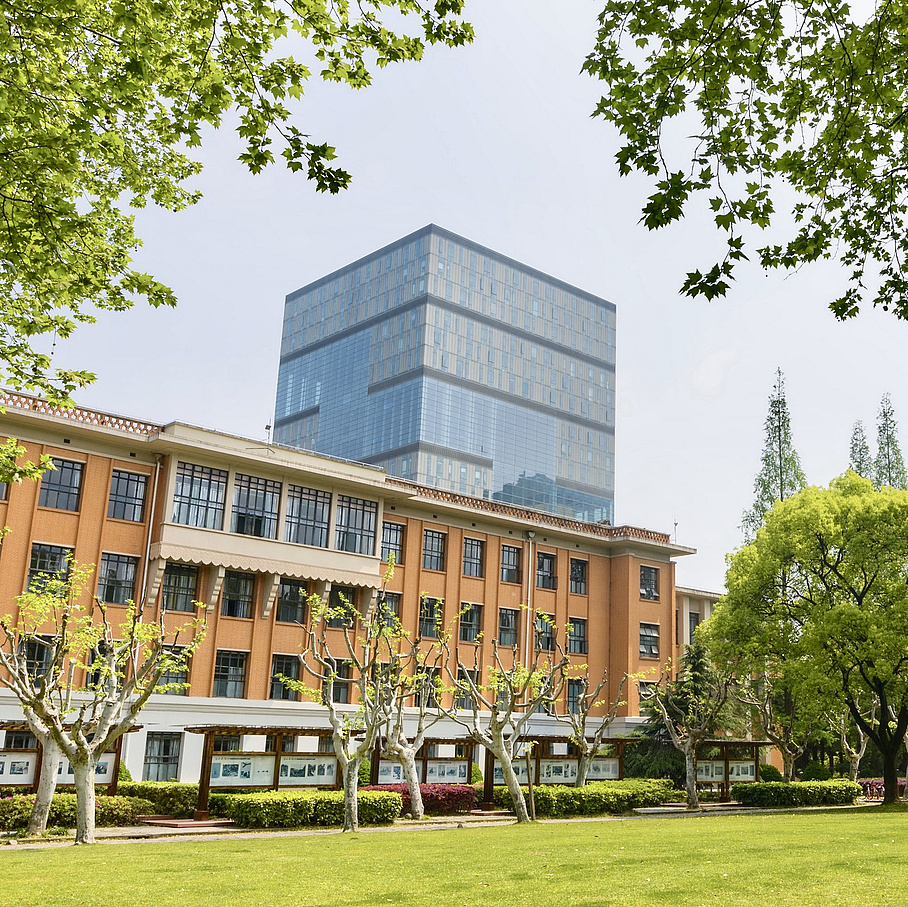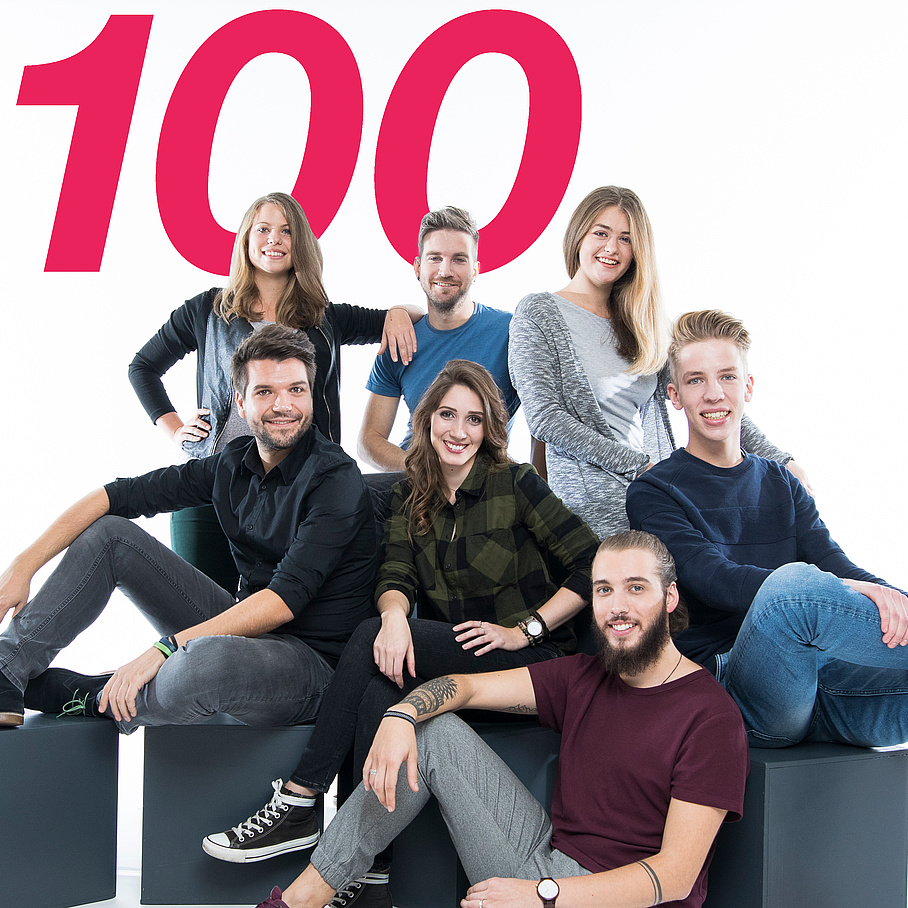- Duration of study: 4 semesters
- ECTS credit points: 120
- Academic degree: "Diplom-Ingenieurin" or "Diplom-Ingenieur" ("Dipl.-Ing." or "DI"), equivalent to the Master of Science (MSc)
- Language of instruction: German
The Master's Programme
The classic field mechanical engineering has undergone an enormous wave of modernisation in recent decades: This field includes everything from high-tech machines for use in Industry 4.0 to modern vehicle and engine technology for low-emission mobility. It covers how to handle sustainable materials and energy technology, how to design and run mechatronic systems, and how to run simulations with numerical methods. In other words, the number of diversification and specialisation areas that fall under the umbrella of mechanical engineering are constantly increasing. The Master's degree programme in Mechanical Engineering considers these developments by combining a broad basic education with relevant, specialized subjects.
Applied mechanical engineering is best learned "by doing". For this reason, you can acquire a solid foundation in practical know-how in the modern laboratories at TU Graz. Conventional engines and large engines designed for use with both fossil and synthetic fuels are tested on powerful test benches. You also have access to test benches for turbomachinery (e.g. jet engines) and for fuel cells. In these laboratories, you learn how to use high-performance materials and the latest production technologies. A resilient IT infrastructure is available for the increasingly important numerical calculations in development.
In the first two semesters of the programme, you will broaden your basic knowledge, e.g. in the areas of thermodynamics, fluid mechanics, material strengths, as well as in the areas of mechanical engineering and business informatics. Plus, you will work with innovative technologies, materials and manufacturing processes and learn how to use numerical methods to perform calculations and simulations.
At the same time, from the 1st semester and on, you will be able to choose from a total of six areas of specialization:
- Production engineering
- Power engineering
- Computational engineering
- Product development of mechatronic systems
- Motor and drive technology
- Vehicle technology and safety
In the corresponding elective modules, you will deepen your theoretical and practical knowledge. State-of-the-art, well-equipped laboratories and test benches, as well as a powerful IT infrastructure, are available to you. Most of these subjects are offered in the 3rd semester, and some of the courses are held in English.
In the 4th semester, you will write your master's thesis, normally placing a focus on solving a practical task. Here’s a tip: Most of the master's theses are written in cooperation with industry and business.
You can also give free rein to your passion for developing something as part of a team and racing outside of your classes: The TU Graz Racing Team has been doing fast laps on international race tracks with self-built cars since 2002; since 2019, the TU Graz ‘Formula-Student cars’ ("Formular-Student-Autos") are run with a purely electric drive.
The student team TERA TU Graz has been developing energy-efficient vehicle technologies with huge success since 2009.
And the TU Graz interdisciplinary High Performance Sailing team overtakes all Styrian competitors on the open water.
Admission
Graduates of the following bachelor's degree programmes are admitted without having to fulfil further requirements:
- Mechanical Engineering, TU Graz
- Mechanical Engineering and Business Economics, TU Graz
- Mechanical Engineering, TU Vienna
- Industrial Engineering and Management - Mechanical Engineering, TU Vienna
Graduates of other Austrian universities can apply for admission.
Graduates of other foreign universities can obtain information and apply for admission by contacting study@tugraz.at.
- Admission and deadlines for Austrian students who are beginning their studies at TU Graz for the first time
- Admission and deadlines for international students
- If you are or were already admitted to a degree programme at TU Graz, please come to the TU Graz Registrar’s Office in person during the admission period or contact study@tugraz.at.
Contact study@tugraz.at
Double Degree Programme
Within the framework of the Master’s degree programme, you can complete a Double Degree Programme with the Tongji University (Shanghai). You will study up to three semesters at Tongji University and receive a degree from both universities.
Students of TU Graz can find further information on the double degree programme on the Intranet TU4U.
At the TU Graz you have to complete the following study achievements:
- Compulsory subject courses: 15 ECTS
- One of the five specialisation subjects related to the subject area: 25 ECTS from the compulsory subject and 10 ECTS from the elective subject
- Courses chosen from the compulsory and elective subject catalogs: 10 ECTS that are credited to the elective subject
At the Tongji University you have to complete the following programme achievements:
- Compulsory subject courses: 6 Tongji Credits (TC)
- Elective subject courses (specialisation subjects): 10 TC
- Practical courses: 6 TC
The Master's thesis is written in consultation with both universities and is supervised by professors from Graz University of Technology and the Tongji University.
Further information can be found in the Curriculum §13 (2) Double Degree Programme.
Students can find further information on the application process in the intranet TU4U.


The double degree programme gave me the opportunity to dive into a completely different culture and gain a lot of experience. I already profited a lot from this, both in my private life and in my professional life. It improved my chances in job interviews and made it much easier for me to work with people from other cultures. The time in Shanghai was unforgettable and I really look back on it with pleasure.
On courses and content
Mario HIRZ
Assoc.Prof. Dipl.-Ing. Dr.techn.
Institute of Automotive Engineering
mario.hirz@tugraz.at
On the mobility scholarship
Lena NEUREITER
BA MA
International Office – Welcome Center
lena.neureiter@tugraz.at
Career Prospects
Graduates from all disciplines of mechanical engineering are in high demand on the job market. The career prospects for mechanical engineers are exceptionally good due to their sound basic and methodological training.
As a graduate of the Master's degree programme in Mechanical Engineering, you will have numerous career options. Depending on your interests and areas of specialization, you can work in a leading position in the area of research and development or as a design engineer.
You can develop and build machines, vehicles, or plants, working with:
- motor or rail vehicles,
- machine tools,
- conveyor systems,
- pumps and turbines,
- plants in environmental, refrigeration and air conditioning technology,
- and even industrial robots.
Acquire AI skills: AIE Extension Programme
Increase your career prospects with the Artificial Intelligence Engineering (AIE) extension programme and learn essential skills in AI development and application during or after completing your Master's degree.





